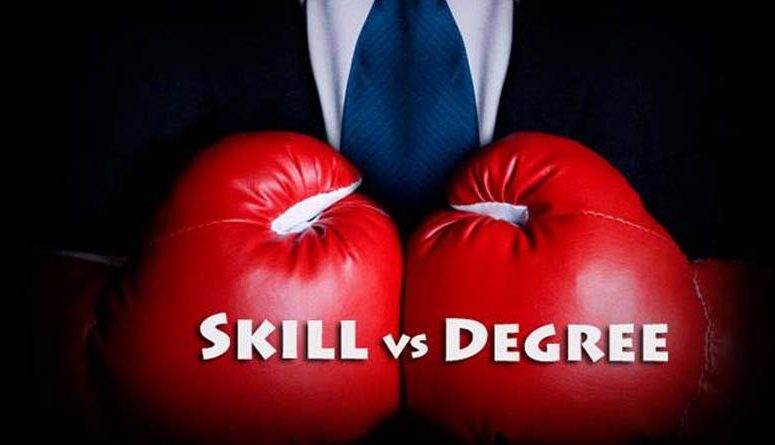
After years of schooling and college, we receive our diplomas, but panic sets in when we find ourselves jobless! Why are so many young people in India unemployed? Because the Indian education system concentrates on an instructor-based approach and rote learning, we are confronting a major skill development shortage throughout the educational process.
Our country is progressing along the right path, and the only way to keep up with it is to combine skills and knowledge. In India, millions of children graduate from various courses each year, but the vast majority of them are unemployed. A report stated that there were aspiring minds. According to the report, 1.5 lakh engineering students graduated from 650 colleges in 2015, but 80 percent of them are still jobless. Despite certain government measures aimed at improving skill development, there is still a wide disparity between supply and demand, with students voicing their dissatisfaction with restricted career options and businesses yearning for quality employees.
There are a number of issues that need to be addressed and worked on:
The content that we are taught is rather outdated; it has nothing to do with current events and needs to be revised. In today’s world, everyone is obsessed with grades because every exam’s cutoff percentage is based on them. Everyone is adopting shortcut methods to obtain achievement without exerting any effort in order to earn higher marks. Another impediment to pupils learning relevant job-ready skills is the limited usage of technology in the classroom.
Degree:-
To begin, I’d like to emphasize that a degree is about more than just having a job. The advantages have an impact on many aspects of life, including academic, social, sports, personal, artistic, ethical, and so on. As a result, while experience may tell you that “doing things that way doesn’t work,” education provides you with the theoretical understanding and analytical skills to demonstrate why it doesn’t. Education improves your learning speed and ability to study in detail.

Skills:
Nowadays, it appears like everyone has or wants a degree, and there is still a strong desire to begin one as soon as feasible. Is it, however, the best course of action? The top 20% of ITI graduates will earn a higher salary than the bottom 20% of engineers. Just like when you have entrepreneurial skills and mindset, studying an intrapreneurship course can help improve and give more knowledge.
The number of graduates every year and the corresponding employment numbers are inextricably linked. According to reports, the majority of graduates are unemployed. This is partly due to the fact that, despite having a bachelor’s degree, many of them lack the necessary abilities to find work in today’s ever-changing labor market. – according to the Ministry of Human Resources and Development

Conclusion
A degree is never more significant than a skill. However, if a person possesses both skill and proper qualifications, as well as a strong level of self-confidence, he will almost certainly advance to a higher position. A person’s skills will assist them in earning money. Companies will not hire him if he has skill but no qualifications. If a guy is a good mechanic but lacks an engineering degree, he cannot call himself an engineer. We must act strongly, rapidly, and boldly in light of India’s massive youth population—10 lakh children will enter the labour field every year. The impossible trinity of cost, quality, and size confronts Indian education, necessitating a variety of separate and distinct solutions. A degree is a way to get a job in a corporation or firm, but it does not guarantee success.
I believe that a good combination of theoretical knowledge and practical understanding is optimal and that this is superior.




